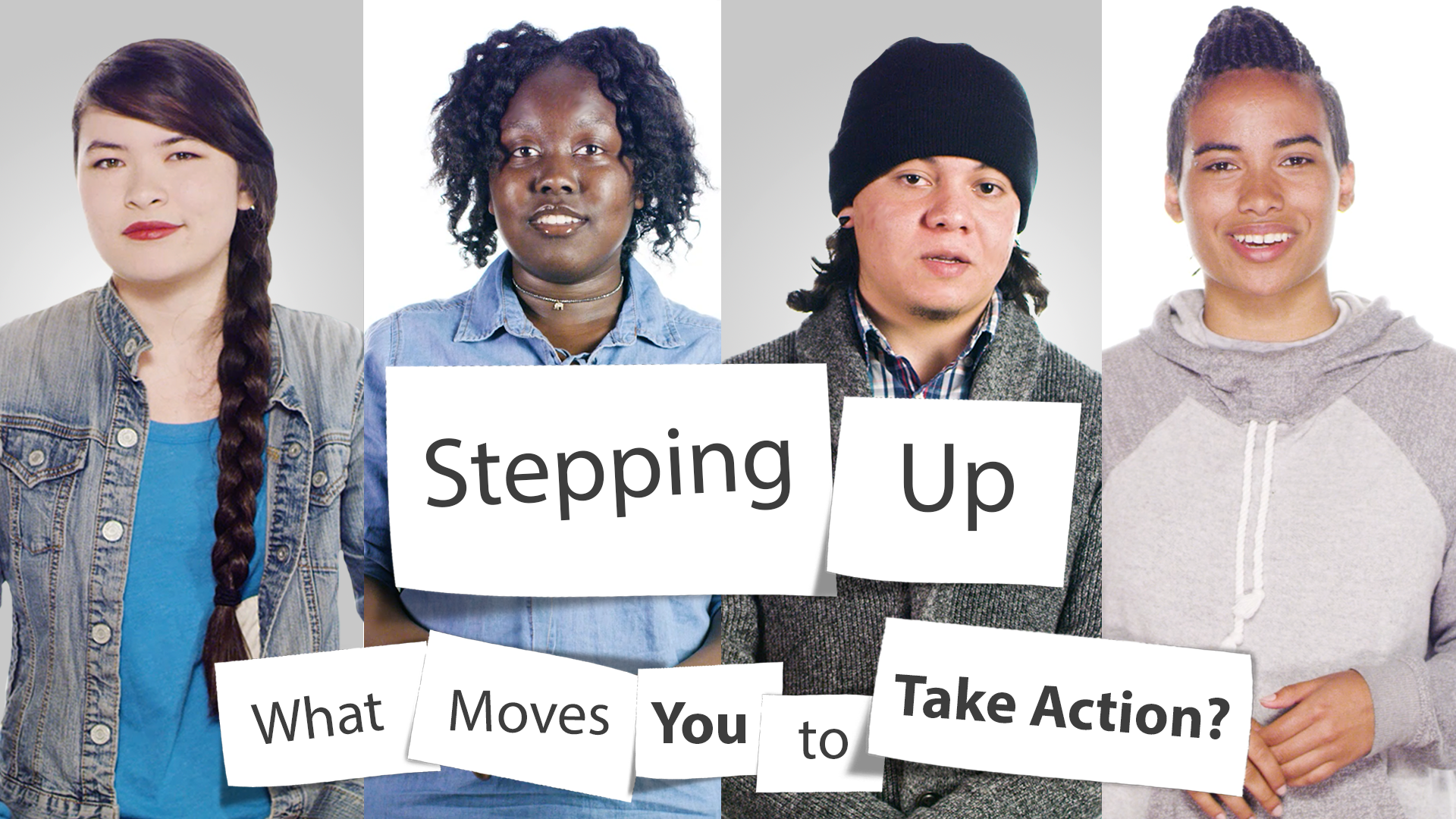Presented in partnership with the Bay Area Video Coalition (BAVC).
Update: We’ve concluded the Youth Media Challenge. Thanks to all who shared how you’re stepping up in your community! Check out the student submissions and read all about our live showcase in San Jose.
What’s the Deal?
This year, the Lowdown sought out Bay Area students who have dedicated a significant chunk of their high school experience to fighting for a cause. We looked for a diverse array of young activists from different backgrounds who were willing to share their unique personal stories and explain why they became passionate about a specific issue. Now we want to hear from YOU!
Maybe you were motivated by a specific program or club you joined, like Naudika, Veronica S., and Veronica F. were. Maybe you started your own club in response to the issues around you, like Walter. Maybe you’re not part of a program or club, but every time you see a piece of litter on the ground, you make a point to pick it up, or when you see someone being bullied or someone using demeaning language, you speak up.
However big or small an action, we want to hear from you!
The Challenge – How Are You Stepping Up?
Have you ever felt so passionately about an issue that it spurred you to action? In a video, audio, or written piece, tell us about the issue or event that sparked you to act, and what you are doing about it.
Selected works will be published on our website, and a small number of the media makers located in the Bay Area will be invited to participate in a public screening in San Francisco.
Submission Guidelines
- Open to youth ages 13-18. We welcome individual and group submissions (up to three youth per group). Those who share an experience and story around the same issue (for example, volunteer at the same program together, co-founded a club together, etc.) are eligible to submit a media piece as a group as long as all participant voices are represented.
- The time limit for video and audio pieces is 3 minutes. Video and audio pieces must be hosted on a shareable platform (YouTube, Vimeo, Soundcloud, etc.) to be considered.
- The word limit for written pieces is 400 words. (Written pieces can be emailed as a PDF file, or hosted on a shareable platform like Google Docs. If using Google Docs, please put settings to “View Only”.)
Note for video submissions: while videos must include your voice and story, visuals are not limited to or required to feature you personally on camera. We welcome animation, photo montages and other creative visual storytelling tools!
Challenge Timeline
“Stepping Up” Online Screening with Media Literacy Week: Monday, November 6, 2017 from 4:00 – 5:00 PM PST
Submission Deadline: Friday, December 1, 2017
Youth Media Makers Notified of Selections: Wednesday, January 3, 2018
Public Screening in San Jose with selected Media Makers: Wednesday, January 17, 2018 [updated]
Selected Works Published on KQED Website: Wednesday, January 17, 2018
Virtual Screening of Media Selections: Thursday, January 18, 2018
Submitting a piece does not guarantee you will be selected. We receive more submissions than we have the capacity to publish. You will be notified by email if your submission is selected.
Questions? Email our Youth Media team at youthmedia@kqed.org. Note: We will not reply to questions regarding the status of your submission.
Submission Terms & Conditions
Submitted works must be your own and not violate any copyrights. For video and audio content, here is a resource for royalty-free music.
By submitting your work you are agreeing that:
- You are between the ages of 13 and 18.
- You made the work yourself.
- If KQED chooses your work, you will be able to produce the following:
- Written permission, if your work contains copyrighted material from other sources (including the Internet)
- Written permission from other people who appear in your work and are identifiable
- These written permissions must also allow the work to be distributed and published by KQED
KQED will not share your personal information submitted above with anyone outside of KQED. For more information on how KQED handles your personal data, please read KQED’s Privacy Policy.
